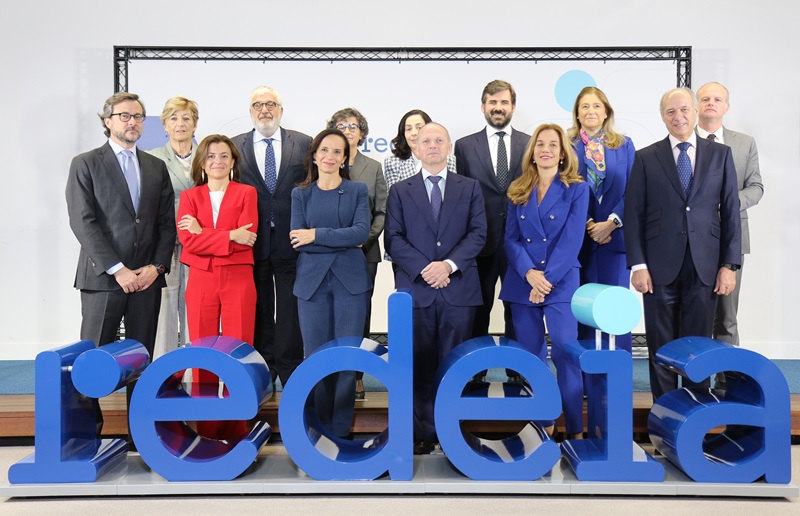We are a global operator of essential infrastructure
- 50 women and 50 men take part in this co-creation project that will revolve around four main topics
- Mayors of eleven municipalities from nine provinces are part of the G100
Redeia and El Hueco set into motion the G100-Cooperación, a co-creation process in which 50 women and 50 men will participate to design pilot projects that will be financed and implemented in some of the municipalities forming the Red Nacional de Pueblos Acogedores para el Teletrabajo (National Host Village Network for Teleworking).
The projects will revolve around four main topics: Cultural tourism, Teleworking, Energy Efficiency and Digital Economy. The final result of the G100 work will be the conception, identification, and proposal of at least four projects, one for each area of work, which will approach specific solutions for the challenges identified by the teams and the specific and actual needs and problems stated by the members of this National Host Village Network (www.pueblosacogedores.com).
Mayors of Paredes de Nava (Palencia), Sarnago (Soria), Benarrabá and Genalguacil (Málaga), Santa Ana La Real (Huelva), Valoria La Buena (Valladolid), Orea and Sigüenza (Guadalajara), Allo (Navarra), Aledo (Murcia), and Caleruega (Burgos) will take part in the G100.
Along with Redeia, companies such as HP, Bodegas Cepa XXI, Grupo Tragsa, La Caixa, Nokia Iberia, Hispasat, or Ceres, together with the Spanish Rural Network and the Spanish Rural Development Network, also form G100. Furthermore, the G100 will have the help of 15 experts in finance from the business, financial, political, and university sectors.
Finally, the G100 is complete with a wide representation of the civil society linked to rural areas, of very diverse profiles, “but all of them with extensive knowledge and experience to contribute to this collective intelligence project,” highlights Joaquín Alcalde, director of El Hueco.
The full list of G100 members can be consulted at www.g100.es.
Tools and methodologies such as the logical framework approach or multistakeholder cooperation strategies, successfully used for decades in the international cooperation sector, will be applied in the G100-Cooperación. Thus, the name of the project.
“We are convinced that G100-Cooperación’s work will contribute to solving one of the main problems all small town halls face due to a shortage of means: the development of innovative, powerful projects that enable them access to several existing public and private financing sources,” sums up Alcalde.
The work will be carried out during January and February in several online sessions and will be completed at the beginning of March with a face-to-face workshop, after which the projects will be ready to be implemented in the area by establishing partnership alliances, providing technical assistance, co-financing, etc., with one or several municipalities of the Network.
Finally, the projects will be presented before a round of funding in Madrid.












